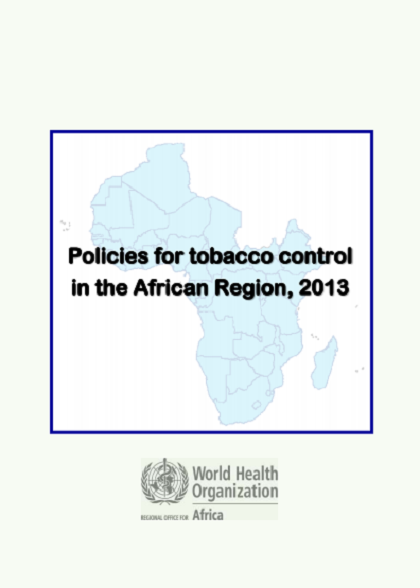
Policies for tobacco control in the African Region, 2013
The main goal of the WHO Framework Convention on Tobacco Control (WHO FCTC) is reducing the prevalence of tobacco use and exposure to tobacco smoke. This goal cannot be attained without effective enforcement of the measures in the WHO FCTC.
Countries in the African Region are making great effort to develop comprehensive tobacco control policies and programmes and are trying to enforce these measures despite the challenges they are faced with, in particular tobacco industry interference and limited resources.
This document provides some key measures in the WHO FCTC and its guidelines that countries should implement for effective tobacco control. It also features the status of some tobacco control policies in the Region.
This document aims to promote tobacco control based on current and relevant evidence.
The following tobacco control areas are covered:
- national tobacco control programmes (Article 5.2 of the WHO FCTC);
- price and tax measures to reduce the demand for tobacco (Article 6 of the WHO FCTC );
- protection from exposure to tobacco smoke (Article 8 of the WHO FCTC);
- packaging and labelling of tobacco products (Article 11 of the WHO FCTC);
- tobacco advertising, promotion and sponsorship (Article 13 of the WHO FCTC);
- tobacco cessation and treatment of tobacco dependence (Article 14 of the WHO FCTC);
- surveillance and monitoring for tobacco control (Article 20 of the WHO FCTC).
The information presented in this document is useful to policy-makers, governments and tobacco control advocates for countries in the African region in order to prevent people from starting to use tobacco; help current tobacco users to quit and; protect people from exposure to second-hand smoke.


